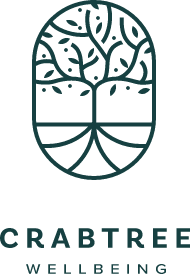The thought of attending counselling for the first time may leave you feeling nervous and apprehensive about what to expect, preventing you from seeking support when you might need it most. This article explores what counselling is and what counselling is not so that if or when you next enter into a therapeutic relationship with your counsellor, you have some ideas of what can be expected.
Counselling is about being shown real empathy; empathy can be defined as feeling and understanding the way someone else feels and is considered one of the cornerstones of the therapeutic relationship.1,2 Counselling is about treating you as a unique human being with your own experiences and world views in which the counsellor really tries to understand your subjective world and experiences. Counselling is about building a relationship together based on trust, collaboration and confidentiality3,4 to explore the issues you want to bring together, whether you are feeling: troubled, stuck, lost, uncertain, distressed, seeking personal growth, clarity, understanding, or a greater self-awareness.
Counselling is not about blandly listening or lending a ‘sympathetic’ ear for you to vent your frustrations at the world (although you may need to do this from time to time!). Counselling is not about giving you advice and solutions to your problems. Counselling is not about sitting in silence week after week whilst you feel uncomfortable or struggle with what to say to fill the void in the therapy room. The therapeutic relationship between the Counsellor and Client and not the ‘type’ of therapy itself is the key determinant for successful therapy outcomes.4 Therefore, Counselling is about having a rapport or connection with your counsellor and together building a strong therapeutic relationship and working alliance.3 Next time you enter the therapy room ask yourself, is this the right person for me and can I work with them? The choice is entirely yours.
Further Reading:
1 Selva, J 2021 Positive Psychology https://positivepsychology.com/empathy/ (accessed January 17th 2022)
2 Rogers C. R. (1951). Client-Centered Therapy. Boston: Houghton Mifflin
3 British Association of Counselling and Psychotherapy (BACP), 2022. https://www.bacp.co.uk/events-and-resources/ethics-and-standards/ethical-framework-for-the-counselling-professions/confidentiality/ (accessed January 17th 2022)
4 https://www.counselling-directory.org.uk/memberarticles/why-the-therapeutic-relationship-matters-13123#:~:text=The%20therapeutic%20relationship%20is%20the,no%20effective%20or%20meaningful%20therapy (accessed January 17th 2022)
5 National Counselling Society, (NCS), 2022. https://nationalcounsellingsociety.org/about-us/code-of-ethics/safeguarding-policy

